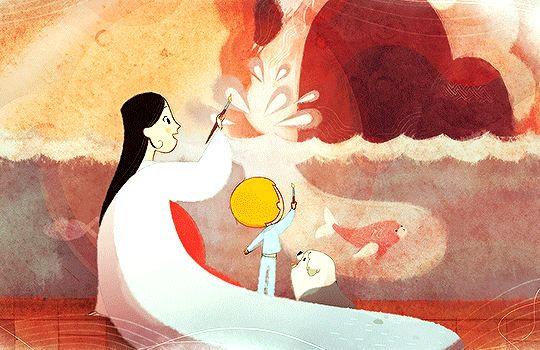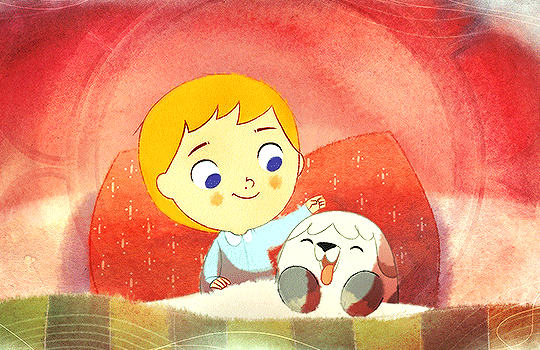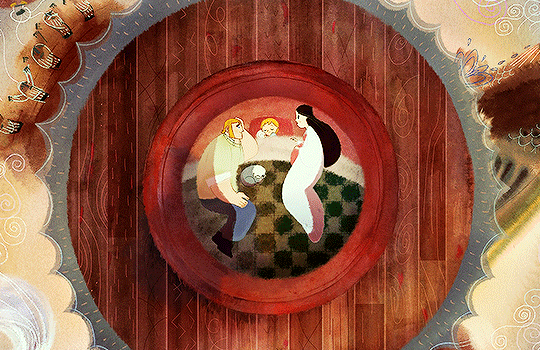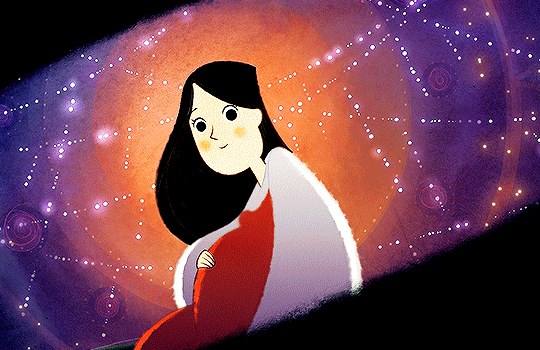Text
"Time loop stories as an allegory for grief" is great and all but love love love when a time loop is entirely self-inflicted and it quickly becomes apparent it's a sort of anxiety disorder driven savior complex.
C'mon, save 'em all. You're the only one who can. :D
7K notes
·
View notes
Text
Dragon Age 2 or, it's alternative title: What Happens When Your Friendship Group Is Full Of People's Who's Traumas Are So Diametrically Opposed To One Another That The Very People They Love And Fight With Are Also Their Biggest Triggers
273 notes
·
View notes
Text
da2 isn't the best dragon age game *because* it's openly a tragedy, but being a tragedy forces a level of narrative coherence that the other games in the series don't have, and *that's* what makes it a better game.
okay, so. dragon age 2 runs on nested foreshadowing and a limited set of themes that almost every character and plot beat fall into: love is not enough, wealth is not enough, power is not enough, good intent is not enough. the problems you run into are structural, rather than individual, and your ability to resolve them as one person is strictly limited. the arishok is a central figure for this, because he prefigures every other tragedy and makes the game's thesis statement as clear as possible. he doesn't want to be in kirkwall, but he is compelled to remain until he gets back what was stolen. he doesn't want to lead a coup attempt, but he is compelled by qunari codes of justice to act. he does not want to die and fail his duty, but but he is compelled to by the other two impossible demands. every tragedy in kirkwall is the result of too many people with wildly different definitions of justice crammed into one place specifically designed to maximize human misery and suffering, and so you get a wonderfully nested narrative onion where each quest reinforces that idea, where there are no good options, just positions you can take — even the affinity system plays into that, where constantly gassing up your friends or constantly pushing them to change are equally correct ways to go, but ones that won't ultimately make a huge difference in their lives or characters, because no matter how much they like you, they're not under your control.
this coherence is even justified by the framing device. of *course* the moral of the game is "insisting on a dogmatic, narrow idea of justice destroys individuals and societies," it's a yarn being spun by varric the con artist to a chantry cop!
neither origins or inquisition play with that sort of narrative complexity. origins is a jaundiced hero's quest, certainly, but it's still basically a hero's quest; inquisition has a number of characters who question what you're doing and why, but the multitude of voices pulls the game in too many potential directions. DA2 was so constrained in its production that it pulled on decidedly ancient theatrical traditions, and it worked so, so well
5K notes
·
View notes
Text
Dragon Age II is like a Dostoevsky's novel in the form of a videogame. There's a corrupt and rotting city with desperate heroes clutching at their ideas and hopes. Half of your friends are the among the most oppressed. The stakes are getting higher and higher, but there is no way out.
Maybe gamers in 2011 wanted to see some kind of "Game of Thrones" narrative (and a bit more varied experience considering the dungeons), so they didn't see this narrative diamond. It is the best game in the Dragon Age series for me now. And mind you, I've played the whole trilogy this summer for the first time.
1K notes
·
View notes
Text
I feel like we need a refresher on Watsonian vs Doylist perspectives in media analysis. When you have a question about a piece of media - about a potential plot hole or error, about a dubious costuming decision, about a character suddenly acting out of character -
A Watsonian answer is one that positions itself within the fictional world.
A Doylist answer is one that positions itself within the real world.
Meaning: if Watson says something that isn't true, one explanation is that Watson made a mistake. Another explanation is that Sir Arthur Conan Doyle made a mistake.
Watsonian explanations are implicitly charitable. You are implicitly buying into the notion that there is a good in-world reason for what you're seeing on screen or on the page. ("The bunny girls in Final Fantasy wear lingerie all the time because they're from a desert culture!")
Doylist explanations are pragmatic. You are acknowledging that the fiction is shaped by real-world forces, like the creators' personal taste, their biases, the pressures they might be under from managers or editors, or the limits of their expertise. ("The bunny girls in Final Fantasy wear lingerie because somebody thought they'd sell more units that way.")
Watsonian explanations tend to be imaginative but naive. Seeking a Watsonian explanation for a problem within a narrative is inherently pleasure-seeking: you don't want your suspension of disbelief to be broken, and you're willing to put in the leg work to prevent it. Looking for a Watsonian answer can make for a fun game! But it can quickly stray into making excuses for lazy or biased storytelling, or cynical and greedy executives.
Doylist explanations are very often accurate, but they're not much fun. They should supersede efforts to provide a Watsonian explanation where actual harm is being done: "This character is being depicted in a racist way because the creators have a racist bias.'" Or: "The lore changed because management fired all of the writers from last season because they didn't want to pay then residuals."
Doylism also runs the risk of becoming trite, when applied to lower stakes discrepancies. Yes, it's possible that this character acted strangely in this episode because this episode had a different writer, but that isn't interesting, and it terminates conversation.
I think a lot of conversations about media would go a lot more smoothly, and everyone would have a lot more fun, if people were just clearer about whether they are looking to engage in Watsonian or Doylist analysis. How many arguments could be prevented by just saying, "No, Doylist you're probably right, but it's more fun to imagine there's a Watsonian reason for this, so that's what I'm doing." Or, "From a Watsonian POV that explanation makes sense, but I'm going with the Doylist view here because the creator's intentions leave a bad taste in my mouth that I can't ignore."
Idk, just keep those terms in your pocket? And if you start to get mad at somebody for their analysis, take a second to see if what they're saying makes more sense from the other side of the Watsonian/Doylist divide.
12K notes
·
View notes
Text
people will say "why cant the eldritch gods just be nice to humans :((" and then kill a bug for existing near them
55K notes
·
View notes
Text
yandere this and tsundere that how about doing your laundere
63K notes
·
View notes
Text
Hollow Knight is one of the most video games of all time. You embrace darkness as a cute bug child. You have thousands of siblings and only one of them has a gender. The best powerup is a compass. The game’s canonical sex icon is a giant worm cocoon. Zote is there.
11K notes
·
View notes
Text
there were at least two people named lancelot recorded in the 1292 paris census so I think we know what the 13th century equivalent of naming your kid sasuke was
38K notes
·
View notes
Text
I think the grail quest should just be super creepy. Like full on biblical horror except Galahad, Lancelot, and Percival don’t acknowledge it. Galahad and Lancelot because they are both just Like That and Percival because he doesn’t want to be the one to bring it up if Galahad isn’t. Bors tries but they just ignore him
539 notes
·
View notes
Text
I feel like when I say ‘relatable’ what I really mean is ‘resonant.’ I don’t want characters who I feel are like me, I want characters who have emotions so strong I can feel them through the page.
116K notes
·
View notes
Text
Guy who has heard other guys refer to their wives as "ball and chain" and "battle-axe" and wrongfully assumed you can refer to your wife as any medieval weapon: oh there's my beautiful Lucerne hammer
54K notes
·
View notes
Text
hollow knight: Before you stands the mighty Soul Master, leader of the Soul Sanctum. He believed that the best way to battle the infection plaguing Hallownest was through the arcane power of Soul. Eventually his research turned into obsession and he resorted to unethical experiments, in the process turning others into malformed creatures with barely a thought in their minds. Once intelligent bugs, those beings are now simply known as Mistakes and Follies, for that is all that the Soul Master’s efforts amounted to. In the end, it was all for naught, as he too succumbed to the infection. Now he is a mere mindless husk, lurking the Sanctum’s roofs and attacking anyone brave or foolish enough to wander there.
also hollow knight: this is Poop Man, he attacks by throwing poop at you. he also swims around in it like scrooge mcduck. when you beat him you get the Poop Medal, which smells like poop so badly it can kill enemies. also some people will recognize Poop Man’s distinctive poop smell and say how cool it is that you met their very good friend Poop Man
6K notes
·
View notes
Text






Come away, oh, human child, to the waters and the wild with a fairy, hand in hand, for the world's more full of weeping than you can understand. SONG OF THE SEA (2014) dir. Tomm Moore
2K notes
·
View notes
Text









"Orlando Bloom signed to the movie the day before he showed up to shoot this. He came right in and just got the character. He had about ten minutes to work on the stuff with the sword. The flip and everything like that... But just how well he plays this scene is just amazing. Everything about the character you need to know comes across here."
Stuard Beattie, Ted Elliott & Terry Rossio and Jay Wolpert - Pirates of the Caribbean: The Curse of the Black Pearl audio commentary
2K notes
·
View notes

